The global experiment reclaiming Western civilisation’s values
Something is wrong with our society and politics. A new global gathering is embarking on a risky experiment to restore our moral centre.

This project is about the battle of ideas, the contest over culture and the guiding principles that govern the West. Its ambition is to restore a sense of principle and morality to the centre-right of Western politics while addressing the spiritual fracture that besets much of Western society across a range of nations.
By definition, this is a grand experiment. It was filled with hope, inspiration and false trails. The main participants came from Britain, Australia and the US.
It follows a decade of disruption and upheaval in the centre-right governments that saw Donald Trump hijack the Republican Party, the Conservative government in Britain plough through five prime ministers and now face certain defeat, and the disruption of the Coalition era in Australia, 2013-22, where confusion about belief led to the revolving door of three prime ministers. This was a gathering of elites that chased two goals: reinventing the governing institutional philosophies of the West and kicking out much of the existing order, some of which is on its own side of politics. The meeting was a turning point signalling that the centre-right belatedly grasps that it needs cultural and moral power to prevail. For years it has lost the battle over ideas and values to the progressive left.
The organisation is called the Alliance for Responsible Citizenship. Its founding letter says a “critical crossroads” has been reached “where our societies will either fall into inevitable decline or renew what inspired its original flourishing”. The atmosphere of transcendent meaning or religious revivalism pervaded the gathering, provoking public enthusiasm and private reservation. Pastors, poets and filmmakers mixed with historians, social theorists and economists. This was a conference on a spectacular scale with more than 90 speakers, panellists and performers, befitting the ambition of its organisers: to become a parallel or alternative to the Davos-based World Economic Forum.
Given the strong Australian presence – three former prime ministers, John Howard, Tony Abbott and Scott Morrison, and two former deputy prime ministers, John Anderson and Barnaby Joyce, as well as several shadow ministers – the ambition is to have a form of ARC conference in Australia in the near term. But that will work only with a serious redesign.
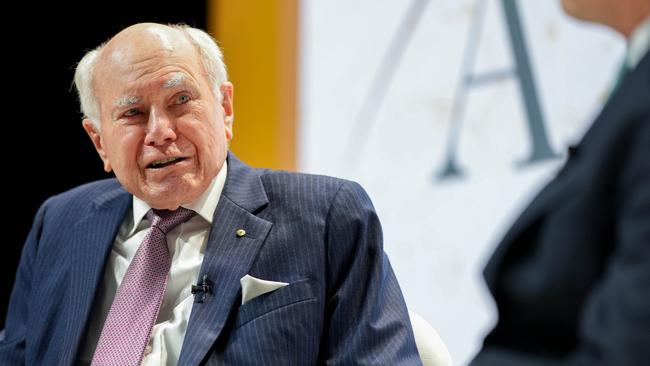
The central narratives were belief in truth and rejection of post-modernism, salvaging the concept of freedom by vesting its meaning with personal responsibility, re-injecting the Christian ethic of the moral life into the social order and rekindling belief in family, community and nation.
ARC is the living example of the conservative nostrum that “politics is downstream of culture” – a largely foreign notion in recent Coalition politics. ARC aspires to repair the culture as the precondition to reviving the politics. It is an effort to renew the foundations of what conservatism and liberalism mean in the disruption of the 2020s when Western nations are being fractured by the demise of shared values, retreat of Christianity, social division, rising inequality and loss of trust in institutions.
ARC co-founder and chief executive Baroness Philippa Stroud, a member of the House of Lords, said: “We cannot address a negative story by being against the permacrisis, declinist, power-base narrative of today. We can only let go of a negative story by taking hold of a better story. It is people taking responsibility who have built our nations.
“We will aim to explore a better story for the family, community and nation, while also exploring how each individual can be empowered to live a fulfilled, responsible life as a citizen.”
The senior Australian involved in ARC, Anderson, told Inquirer: “Every economic and social indicator you look at tells you that human flourishing is seriously challenged in the Western world. Our children are in crisis. Many no longer believe in democratic capitalism but you’re got to have some sympathy for why they feel that way. Our systems aren’t delivering.”
Anderson has found a new mission in life. In his brief for the event, he depicted the situation in dire terms: “Having forgotten and even rejected the lessons of our own history we are chronically distrustful not only of one another – and our leaders in particular – but also of the institutions that have undergirded our freedom and prosperity. Most frighteningly, we distrust and increasingly reject the underlying beliefs and values that have given rise to our society.” He said the aim “was not to bring back a society from the past” but to invoke our civilisation heritage to inject a new purpose into meeting contemporary challenges.
ARC is about politics but it is not a political organisation as such. This is the cardinal point to grasp. It is best seen as a movement united by a common spirit and alarm at Western spiritual decay. It constitutes a coalition of different groups across different countries, which makes a united political agenda impossible. It is about principles rather than specifics. There may be a common spirit but holding this diverse coalition together is daunting. The inaugural meeting drew on British conservatives, classical liberals, cultural warriors, Anglicans, evangelicals, even some Catholics, US conservatives and free-market believers, with Australia conspicuous for its mainstream Liberal and. Nationals representatives, easily the nation with the most politicians in attendance.
While there were Trump sentimentalists in the throng there was a stronger UK-Australia sentiment to liberate economic policy from populism and moral politics from the Trumpian dystopia.
The dominant theme was the need to integrate sound economics with the good society. Nowhere was this more vital than transforming attitudes and policy towards children. The message was: children should be enshrined at the centre of life, not seen as an infringement on parental self-fulfilment; the priority for children aged 0 to three years was spending time with parents, mainly mothers, with the imperative being to ban and control devices for young people. Identity politics and individual narcissism were seen as the drivers of cultural decline undermining community co-operation, family unity and national purpose.
Among ARC speakers there was a shared belief that institutions and corporations had betrayed their responsibilities by succumbing to progressive orthodoxies. The attack on big business values was near universal.
British Business and Trade Secretary and Women and Equalities Minister Kemi Badenoch said companies were using diversity and inclusion to attract investment rather than being entrepreneurial and innovative. The priorities were wrong. “Something weird is happening,” she said. “In a low-growth environment, businesses are now competing not on who can make the most profit but who can signal the most virtue.”
The most potent criticism came from the pivotal figure who made the ARC possible, British investor, hedge fund manager and media owner Sir Paul Marshall, one of the five ARC founders and its key financial backer. “Free enterprise without good governance is a recipe for disaster,” Marshall said. “A generational wealth divide is now entrenched in every major Western democracy that – unsurprisingly – casts doubts in the minds of young people about the merits of the economic system which created the modern world.”
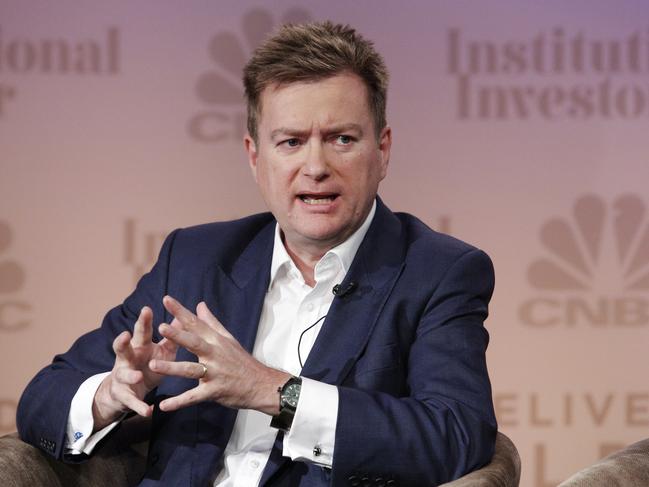
Marshall attacked crony capitalism, oligopolistic markets, environmental, social and governance investing as a noble purpose gone wrong, economic populism and the consequences of big pharma and big tech. He slammed the managerial class in corporations for pursuing their own interests, running woke agendas, and said in the digital age too many business managers “don’t have to live with the human consequences of their decisions”. He identified the global financial crisis as the “largest transfer of wealth from the poor to the rich since the Norman conquest”; he said the GFC triggered money printing, escalating asset prices and massive inequality, and saw the losses socialised and the gains privatised. He wants free enterprise and free markets restored on a sustainable regulated basis, otherwise there is only “corruption and injustice”.
Marshall, a down-to-earth personality, on the hunt for bigger media assets, keen on educational and cultural improvement, funder of the political website UnHerd, and worth an estimated £680m ($1.05bn) according to the Sunday Times rich list, is obviously critical to ARC’s future. But the momentum is there. At the end of the conference Stroud announced she had pencilled in February 2025 for the next gathering.
Marshall wants to see ARC chapters established in individual nations. That’s a big step for Australia. How would it work? Could it work? Don’t imagine that would be a marginal event. ARC thinks big and acts big, that’s the lesson from the London meeting.
Some of the Western world “big guns” delivered their homilies. Historian Niall Ferguson warned the West faced “ongoing degeneration” and had failed to grasp the ideological nature of its enemies because the West itself was now devoid of any ideological conviction.
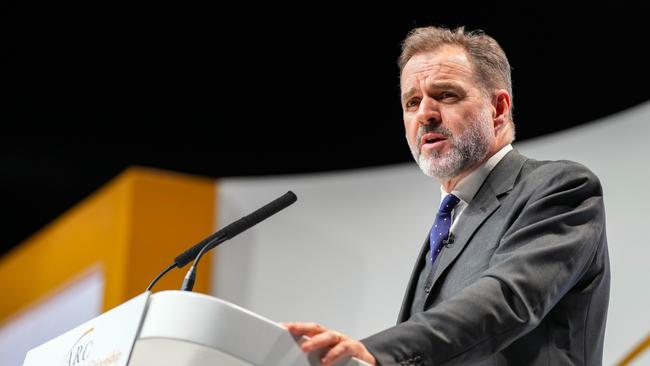
He called for “an end to the politicisation of education”, reported US surveys that 59 per cent of campus students were reluctant to say what they believed and suggested young people would probably back an authoritarian government if it offered a climate change solution.
American social psychologist Jonathan Haidt warned that the West was witnessing “the great rewiring of childhood” and described the tolerance afforded young people with social media platforms as “insane”.
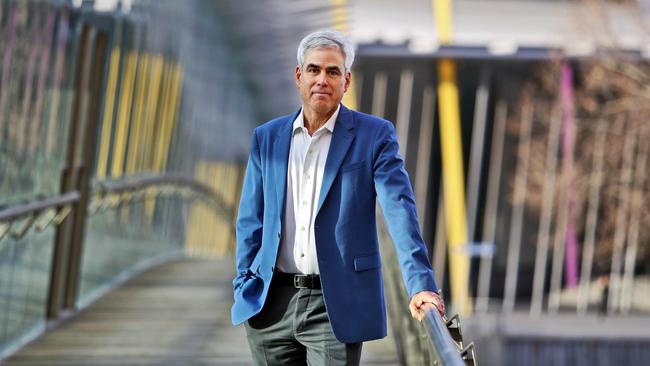
He said nobody was defending “this phone-based childhood”. Based on his survey work, Haidt said the great change came across the Anglosphere from about 2012 when rates of depression, mental illness and suicide shot up, most pronounced where young people were less rooted in society and religious communities. The trouble was most evident in girls with a secular liberal background.
There was also a wider problem: some social media platforms were now incompatible with democracy.
“This is the biggest health crisis in known history for kids,” Haidt said. Childhood had become “phone based” not “play based”. Haidt called for a four-point action plan: no smartphones before high school; no social media before 16 years; phone-free schools; and more scope for play and direct human interaction.
Clinical psychologist and celebrity preacher Jordan Peterson was a major figure at ARC and is one of its instigators, being on the five-person founding panel. He presents as a contemporary prophet, declaring a shadow has fallen across the West: “God is dead or so the story goes and the future is uncertain.”
"If we are wise, faithful, courageous, and responsible...then we can tilt the world towards heaven and away from hell"@jordanbpeterson closing #ARC2023 with an impassioned speech urging each of us to "get outside ourselves and serve a higher purpose."
— The Alliance for Responsible Citizenship (@arc_forum) November 1, 2023
Then we will "remember… pic.twitter.com/8zKgoT98Pp
He sees the contemporary world as lacking “intrinsic meaning”, blighted by “the false idol of apocalyptic ideology” and constant displays of “environmental catastrophism”. For him, the individual has been reduced, now seen as a “rapacious, predatory, parasitical consumer”. He denounces those climate activists who are hostile to the human population, saying they advocate “the ultimate Malthusian nightmare” and project a vision where humans confront plague, anarchy and starvation.
Peterson urges the world to move “towards heaven and away from hell”. How is this to be done? By individuals who are “wise, faithful, courageous and responsible”. He says each person has a role to play in the destiny of the world and be “captain of your own ship”. Humans, he said, need a transcendent power “otherwise the state assumes the spectre of God”.
It was Peterson who delivered the closing address, signalling ARC’s attachment to his intellectual and religious profile and his critique of elite institutions. His style, however, would not play well in Australia in politics or most churches. That is not to underestimate his evangelical appeal to young people. But as several Australians left the conference hall on the final day their shared view was apparent: it is hard to discern how Peterson has anything whatsoever to contribute to the revival of centre-right politics in Australia. Indeed, he needs to be kept away.
This highlights one of the dilemmas facing the ARC. The religious element is critical to ARC’s formation. Yet religion has a different form and character across the US, Britain and Australia. The difficulty the Australian centre right faces having decided that part of the cultural problem is the decline of Christian values is whether to propose a solution based in the resurrection of Christian values. This is the job of churches, not politicians.
The answer – and ARC completely shares this answer – is to seek revival of the cultural and civilisational tradition. That opens the lens to the entire electorate. If ARC is to succeed it must be embracing and inclusive, clearly the approach favoured by Stroud.
The conference was sensible not to put climate change at its heart. There were presentations from pro-human environmental movement champion Michael Shellenberger and Texas state geologist Scott Tinker drawing out the sheer complexity, costs and contradictions of the drive to net zero.
The ARC is on safe ground exposing the flaws in the approaches to reducing global emissions, but it cannot afford to be branded climate deniers. Its real role, surely, is to promote debate and analysis, seeking to rise above the prevailing intellectual tyranny where people are cast as believers or non-believers.
Over three days the Australians were everywhere: Angus Taylor, Andrew Hastie, Dan Tehan, Julian Leeser, Matt Canavan, Jacinta Nampijinpa Price, James Paterson and former NSW premier Dominic Perrottet, among others. Catholic Archbishop of Sydney Anthony Fisher was there along with former federal Liberal Party director Brian Loughnane and Sky News commentator and former Abbott adviser Peta Credlin.
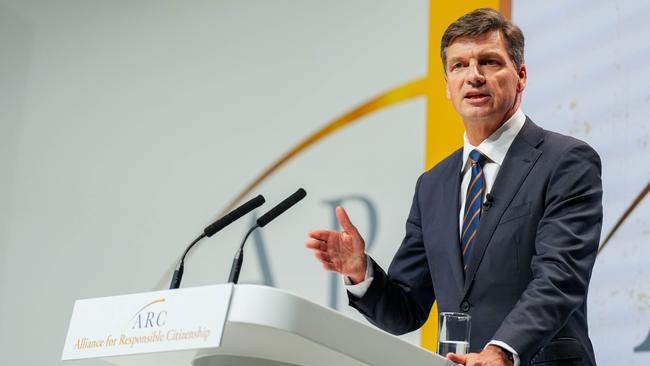
“I have been amazed at the number of Australians saying can we have a conference and bring people to Australia,” Anderson said. “I want to do something in Australia modelled on this. That means setting our sights high.”
The standout Australian contribution was Price, speaking without notes but from the heart to an international audience, explaining the meaning and consequences of the voice referendum defeat.
Consider the irony – Anthony Albanese said during the campaign Australia would be embarrassed abroad if the referendum were defeated, but now it has been defeated Price had a global platform to explain the Australian people voted against racial division and for constitutional equality.
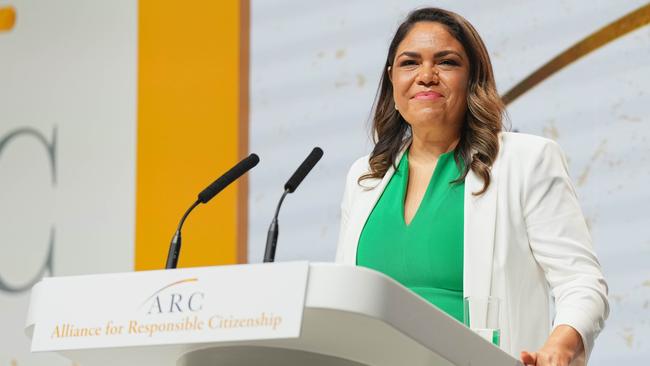
Opposition Treasury spokesman Taylor gave one of his most important speeches outlining the principles governing the Coalition’s approach. He sees the cultural divide extending deep into the economic realm. Taylor said: “Many Australians believe they are shut out of wealth accumulation by complex regulations and tax regimes, inflexible workplaces and an elite class of peak bodies, corporations, governments, that take a world view disconnected from everyday lives.
“In Australia, as we’ve seen globally, the top end of town is largely protected by enormous gains in home values as housing supply has failed to keep up with demand. The consequence is a top of town that is disengaged from the hardship that sees dual-income families queueing in line at food banks.
“Most of our leaders were cheering for identity politics in our Constitution while ignoring the enormous pressure that double-digit increases in the price of almost everything have wrecked on family budgets and quality of life.
“To bridge the cultural and economic gap we need to re-embrace an agenda that supports individuals who take responsibility.”
The Coalition script is apparent: the economic divide overlaps with the cultural divide. Taylor reinforces a central theme from the ARC – elite institutions and leaders have underperformed on the economy and patronised in cultural terms the people who have lived with negative wages growth, high prices and stagnant living standards. This is a dangerous political brew. Australia will hear more of this from the Coalition in the coming year.
The ARC is a work in progress. It is a bold experiment that addresses the central affliction in Western nations. It aspires to construct an alliance of interests and people to stage a cultural counter-revolution. Its challenge will be to keep that broad coalition together while giving the movement serious momentum. It is guaranteed to become the butt of progressive ridicule – but it shows, at least, the centre-right of Western politics knows the model is broken and badly needs repair.



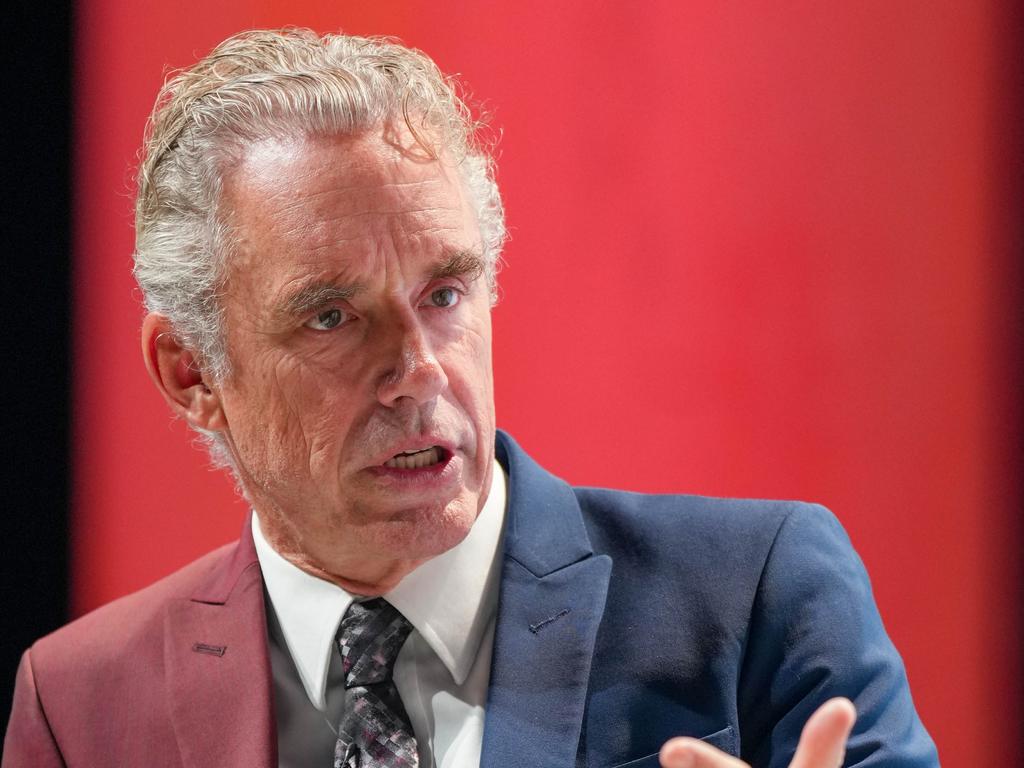
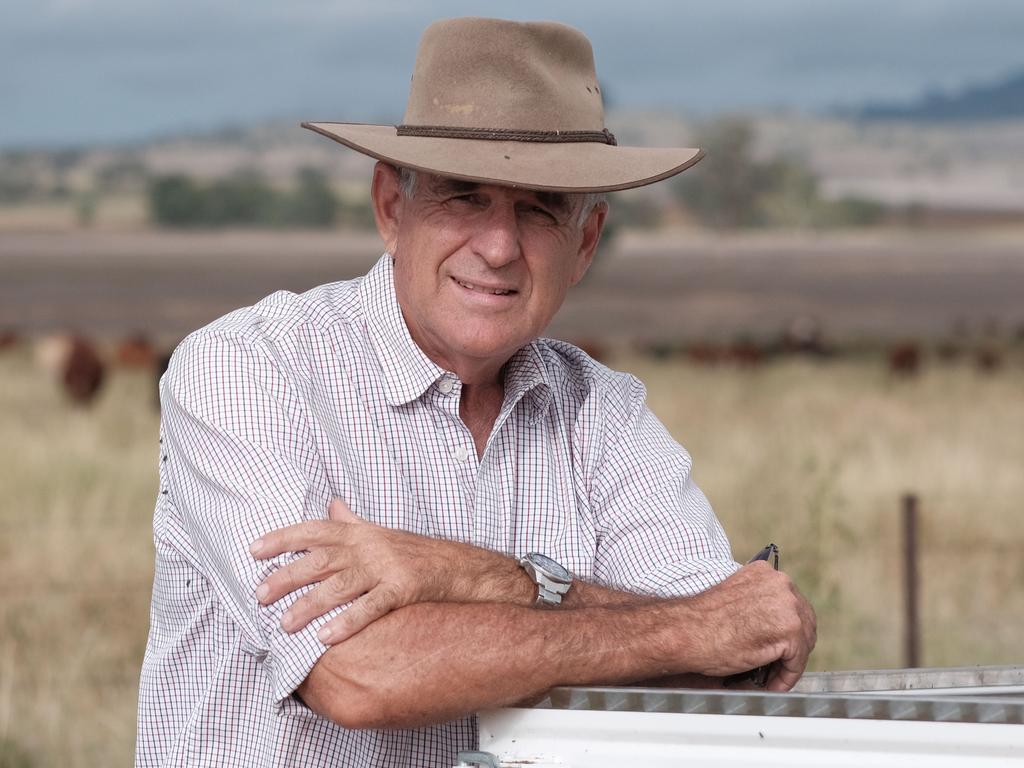
It could never happen in the Australia of 2023 – a global meeting to halt the perceived decline in Western culture and shape a strategy of transformation, renewal and re-discovery. Conceived in historical optimism, invoking William Wilberforce, St Thomas Aquinas, Bob Dylan, the Book of Job and Matthew Arnold, a new project was unveiled in London this week when 1500 people from more than 70 nations came together to inaugurate a pathway based on the declaration that a “civilisational moment” had arrived.